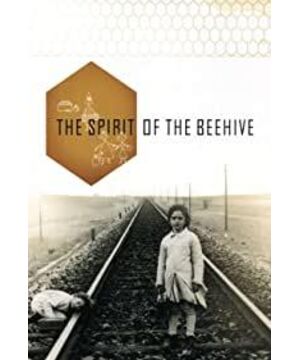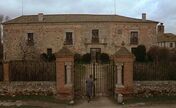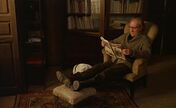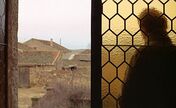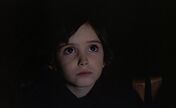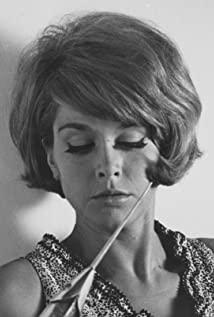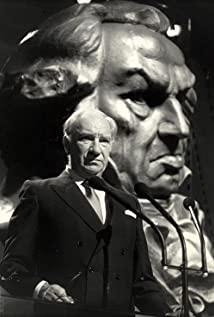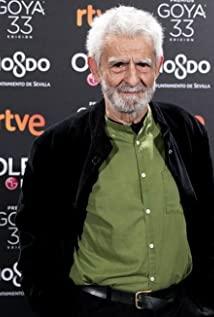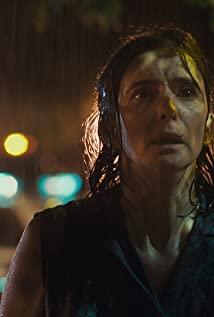I even read "Hive Ghost" three times, and wrote down my humble opinion.
The time of the story is 1940, and it has some political metaphors, but I don't know much about it so I don't talk too much about the political part.
The film is called "Hive Ghost". The beehive is as the father said in the film. The metaphor is quite obvious, alluding to the adults at that time, like bees in the hive, living an irregular and futile life. Ghosts are things that do not exist in reality, but only in fantasy. In the movie, they refer to the world in Anna's eyes, and also to the aliens in the "hive". The two little girls in the film contrast each other, reflecting the formation of two world views. The important episodes are listed below in chronological order.
1. "Frankenstein" was shown in the cinema, and someone in the title introduced the content and said, "I hope you don't take it seriously." Foreshadowing the confusion of Anna's worldview.
2. The father works in the hive, but cut into the letter written by the mother to the lover, in which there is a sentence "We have lost the ability to feel life". Boldly guess that the mother once loved fantasy like Anna, but suffered from the pressure of reality and called it "the bee in the nest"
3. My mother went to the station to deliver the letter and looked at the soldiers on the train. A soldier may see his wife in a foreign land in the eyes of a soldier, and a lover who joined the army may be seen in his mother's eyes. The train appears for the first time.
4. My father finished work and took out a clockwork pocket watch. This was the first time a clockwork pocket watch appeared. (I had doubts about the pocket watch before, and now there is a guess that will be mentioned later.)
5. When the father came home, he asked the servant's mother where he was going (this echoes the following text, the adults call the servant always on call, but Anna called the servant but failed.)
6. When my father returned to the study, he heard the sound of the movie being shown in the cinema, and curiously opened the window and listened carefully. This is the first time a honeycomb window appears, and the opening of the window coupled with the film's dialogue seems to suggest a revival of the father's personality.
7. At this time, Frankenstein was showing the little girl for the first time in the cinema. Neither of them had formed three views in the film, and they could not distinguish between beauty and ugliness, good and evil, and naturally came together. At this time, Anna watched carefully, and Isabella looked serious, implying that Anna was still innocent, but Isabella was more mature.
8. The two sisters had a bedside conversation. Isabella proposed the concept of ghosts and said, "If you are his friend, you can talk to him at any time." Just like playing dead later, Isabella was teasing Anna, but Anna took it seriously.
9. The father writes a work diary in the study, and the content is the key to the whole film. When he wrote that "he observed all this, and when the initial astonishment subsided, an indescribable sadness and horror quickly appeared on his face", the father crossed it out. Obviously the man thought of himself when he saw the bee, and the father was reluctant to face such a bitter reality and chose to escape. Then it was dawn, and the honeycomb-like windows reappeared, and the scene also flashed bees in the net and paper bees on the table.
10. In the class, the teacher asked Anna what the model was missing. Anna didn't know. Isabella told her that it was "eyes", and Anna added the eyes to the model. Alluding to Anna's daze about "vision".
11. Isabella took Anna to the abandoned stone house. Isabella pretended to talk to the ghost, and Anna was suspicious. A few days later, Anna came to the stone house alone, threw stones into the well and entered the house to check, but of course found nothing. But she found large footprints in front of the house, so she believed Isabella's words, and believed that the ghost existed and only talked to Isabella. (The vista of this section is very beautiful)
12. The father took the two daughters to pick mushrooms, and the father stepped on the smelly poisonous mushrooms. Perhaps this aroused the desire for destruction in Isabella's heart? Alluding to Anna's dazed sense of smell.
13. Before his father went out, his mother threw him a hat. This is the only time the two are in the same frame, and they are separated by a distance.
14. The two daughters fight, but the servants stop them. The two daughters imitate their father to shave. The mother combed Anna's hair and told Anna, "A good ghost is a good girl who stays with a good girl." This sentence is very crucial. (The mother was never in the same frame as Isabella, and it can be guessed that the mother was also very similar to Anna)
15. The two daughters were listening to the train on the tracks, but Anna was at a loss when she saw the train, and avoided it only after Isabella shouted. It hints that Anna's hearing is dazed.
16. Anna went to the stone house again, and Isabella followed. The shot cuts directly from Isabella to the black cat, forming a metaphor. On the one hand, it implies that Isabella is mature and cunning like a black cat, and on the other hand, it implies that she will bring misfortune.
17. Anna looked through her parents' albums. The two were never in the same frame. One photo seemed to be a photo of her mother and her lover, and the other was a photo of her father and two "authorities". Another appears to be a photo taken by a lover of her mother, calling "Mother" a world-weary one. It can be seen that the two parents were very different when they were young. The father can be called a "congruent person", that is, a person who hopes to integrate into the social circle; It then cuts to the mother playing the piano, with the hive as the background, implying that the mother is eventually assimilated.
18. Anna was watching the bees outside the hive. Isabella was playing with the black cat. She accidentally strangled the black cat with too much force. The black cat broke free and bit back. Isabella touched the blood on her lips as lipstick. Implying that Isabella is precocious.
19. Anna heard Isabella's cry and went through three doors in three directions (there have been many times, only children have passed through, or it is a hint of children's free nature, which reflects that adults dare not break the rules), see Play dead Isabella. Ana at first mistakenly thought it was Isabella to hide from her ghostly friend and closed the window. But whispering, listening to the heartbeat, and pretending to leave failed to wake Isabella, convinced that Isabella was dead. (Here, Anna has heard the heartbeat, but still uses visual confirmation, which means that she does not believe her hearing at this time.) Then Anna looked for a maid, but failed. Anna is not a type of person).
20. When Anna went back to her room, she found the window was open and Isabella was missing. After closing the window, I was startled by Isabella from behind. At this moment, Anna was at a loss, unable to tell whether Isabella was a human or a ghost.
21. A group of children jumped over the fire. Anna did not participate. The firelight reflected the shadows of several children. It looked like Anna was surrounded by a group of ghosts. At this time, Anna has completely blurred fantasy and reality. (After that, Anna and Isabella's faces were never framed again)
22. Anna sat by the fire with a bewildered face and was taken away by the servants.
23. Anna left home for the first time at night (Isabella said earlier that ghosts always haunt at night), tying her shoelaces to lay a foreshadowing. Anna closed her eyes to the sky, and the picture cuts directly to the soldier jumping off the train to escape. The soldiers fled to the stone house for refuge, and Anna went home. According to Anna's perspective (the statement about ghosts comes entirely from Isabella), you may be able to connect with ghosts when you leave home at night, and you can see ghosts when you go to the stone house. At this time, Isabella asked Anna, but Anna didn't answer, and there was a gap between the two.
24. The picture cuts directly from the sleeping Anna to the sleeping soldier. When the two met for the first time, Anna gave the soldier an apple. The soldier was so hungry that he ate it directly. Anna went to the stone house to see the soldiers again, and the soldiers took out a clockwork pocket watch to play with Anna. Anna left, and the soldier was killed that night.
The amount of information in this passage is huge, and I carefully compared it with the music at 11 minutes. Although the start and end are different, they should be different passages of the same music. The pocket watch in the soldier's hand and the father's hand should be the same style. Then I boldly infer that the soldier is his mother's lover, a pocket watch or a token of love for the two. After the soldier joined the army, his mother gave his watch to his father. Subsequent mother burning letters can also support this point.
At this time, Anna regarded the soldier as her ghost friend. The soldier may have recognized Anna's appearance, so she dared to eat the apple given by Anna. Anna may have heard this piece of music from her father, so she was a little dazed after listening to it, and then she may think that it is not surprising that the ghost friend has the same watch, and the soldier played a magic trick to change the watch, which made Anna relieved, and felt that the ghost on the ghost had the same watch. It is acceptable to go beyond the common sense.
25. My father went to recognize the corpse (one of the corpses was wearing socks and the other was not, echoing Frankenstein), the father didn't recognize the soldier's face, but he felt strange when he heard the music on the watch. I was still thinking when I went home for dinner (the only time a family of four was in the same scene, but all four were not in the same frame). Father seemed to think of something, turned on the watch and played the music, looked at Anna, and then gave Anna and mother a shot.
The father seemed to suspect that the soldier was his mother's lover, and even suspected that the soldier's death in the stone house had something to do with his mother, and he might still wonder if his mother was having an affair with the soldier. But I didn't dare to look at my mother when the music was playing (I didn't want to disrupt the current family relationship), I only dared to peek at my mother's reaction after the music was played. At this time, looking at Anna was completely unintentional. Ana was at a loss and began to worry about the safety of her ghost friend. Mother hides her expression by drinking coffee.
26. Anna returned to the stone house to see that no one was in the house, and went to check the well. He then went back to the house to check carefully and found bloodstains. When he saw his father, he turned and ran.
Here, Anna mistakenly thought that her father killed her ghost friend; her father was surprised by Anna's appearance, and wanted to stop Anna and ask for clarification.
27. Everyone searched for Anna to no avail. Anna walks at night and touches mushrooms, while her mother burns letters to her lover (as evidence that the soldier is the lover). Here Anna begins to pursue her fantasy alone, while her mother completely accepts reality.
28. Anna saw her own reflection in the water and turned into Frankenstein. When she looked back, Frankenstein actually had the face of her father. Or suggest that Anna yearns for more fatherly love and hopes to communicate more with her father? The scene here resembles a scene from Frankenstein.
29. Everyone found Anna. The mother talks to the doctor (again, the honeycomb window is in the background), the mother said that Anna "doesn't sleep, eat, talk, fear the light, and doesn't seem to know family members or that family members don't exist", the doctor said that Anna will eventually Forget, the servant came in and said that Anna had fallen asleep. At this time, Anna's worldview was still in a state of complete confusion, unable to distinguish between fantasy and reality.
30. Isabella enters the room and can see that her bed has been emptied. Isabella called out to Anna, but there was no answer. At this time, the two sisters have been completely separated, forming a completely different worldview.
31. Ending: As dawn broke, father walked back and forth in the study reading his diary; Isabella tossed and turned in the new room and had trouble falling asleep; mother closed the diary for her sleeping father and turned off the lights; the camera cuts directly from the light to the water glass , Anna got up to drink water, got out of bed and called ghost friends.
It is implied that the parents and Isabella are called contemporaries after all, continuing their unruly but futile lives. Ana is immersed in her own world, taking a different path than others.
View more about The Spirit of the Beehive reviews


